11 Subtle Warning Signs Someone Is In Survival Mode, According To Research
When you're stuck in survival mode, you may not even be aware of the patterns keeping you there.
 BGStock72 / Shutterstock
BGStock72 / Shutterstock Being in survival mode doesn't always look the same, and a person's experience of it may not be obvious to others. Many people find themselves living in survival mode without even realizing it, but it shows up in the quiet and mundane ways they live their lives. It isn't until someone (or someone who cares about them) recognizes what is going on behind their feelings of detachment and inadequacy that they'll finally be able to realize they aren't living at all.
There are a multitude of things that can trigger someone to be living in survival mode, whether it's unresolved trauma, stress, burnout, or simply not allowing oneself to properly rest. Over time, this ends up becoming the norm, but beneath these behaviors is a person who is trying to find safety and a sense of control.
Here are 11 subtle warning signs someone is in survival mode, according to research
1. Difficulty making decisions
 SeventyFour | Shutterstock
SeventyFour | Shutterstock
When someone finds themselves stuck in survival mode, they may have trouble making even the smallest of decisions. Choosing what they want to eat for breakfast or what activity they want to do during the weekend can feel overwhelming and impossible. Their brain is operating in high-stress mode, and they simply do not have the capacity to manage more. When you're in constant fight-or-flight mode, your brain just isn't able to think clearly and make confident choices.
Research suggests that stress influences our ability to make new decisions. This stems from our brains sensing anxiety, leading the brain to prepare for survival mode and enter a positive stress state, where an increase in blood flow and oxygen to the brain leads to greater cognitive performance. However, when anxiety is not managed, the body shifts to a negative stress state, which ends up having the opposite effect.
2. They always say they're fine, but never seem it
 Prostock-studio | Shutterstock
Prostock-studio | Shutterstock
When you ask how they're doing, they say that everything is fine, but their body language says otherwise. This disconnect from what they're saying versus how they're showing up emotionally can be a telling sign that they're in survival mode. They may seem tired, distant, or as if they're carrying this unseen burden on their shoulders that's weighing them down.
People who are feeling overwhelmed and struggling to just make it to the next day often become quite good at suppressing how they feel. Most of the time, this comes from not wanting to be a burden or not wanting to bring attention to their needs, but the only issue that comes with emotional suppression is the disservice you end up doing to yourself in the process.
"The more we recognize, allow, and make space for our emotions, the greater tolerance we build for them. With greater tolerance, we're better able to modulate our emotions so they don't overwhelm our decision-making abilities or reason, or seem so unbearable that we have to suppress them," explained psychotherapist Katherine Cullen. "It may not always feel easy to respond rather than react to our emotions, but each time we try to do so, we get that much better at it."
3. They've stopped dreaming about the future
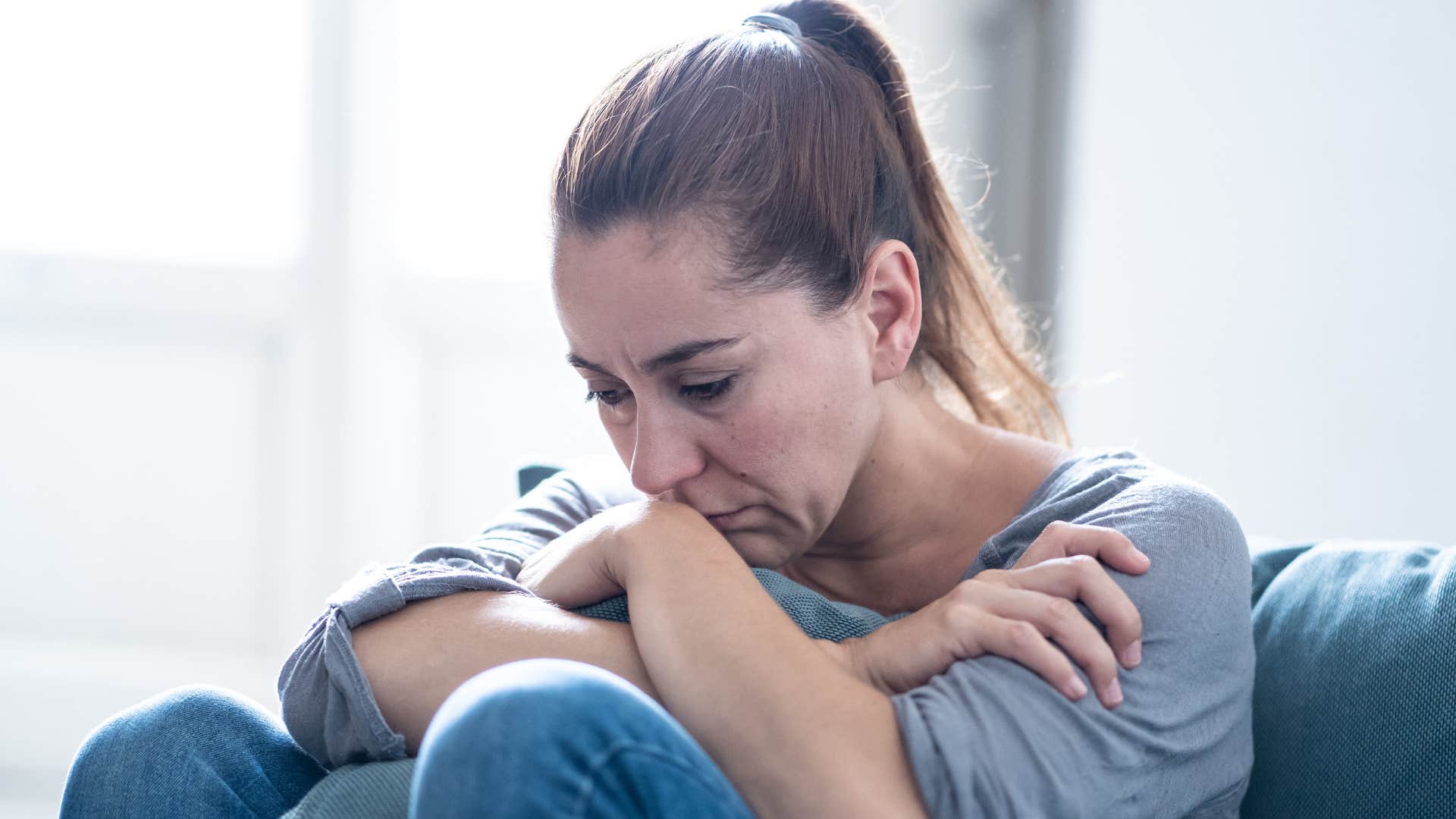 SB Arts Media | Shutterstock
SB Arts Media | Shutterstock
Someone in survival mode has most likely lost the ability to imagine or even desire a future. They're no longer talking about their goals, dreams, and aspirations because it just overwhelms them to even think that far ahead. They're so disconnected from the vision of what they want from life because of how emotionally exhausted they are.
Research has shown that stress can have such a broad effect on brain function, including the parts that are responsible for planning. Considering they don't even feel safe living in the present, there's just no way they can begin to think about how they're able to navigate future goals and projects. They've lost the spark that helps them have purpose towards what matters.
4. They're always forgetting things
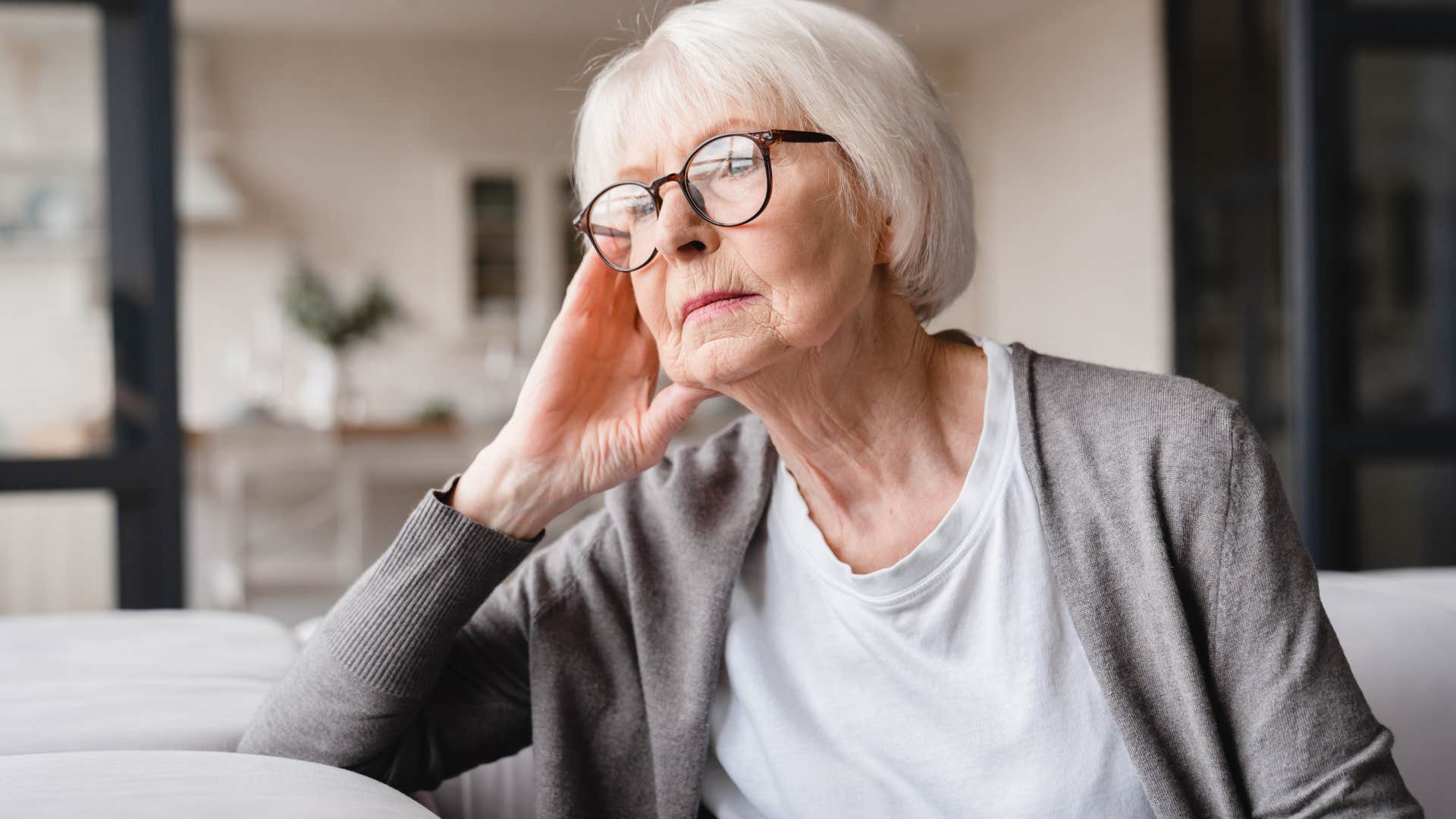 Inside Creative House | Shutterstock
Inside Creative House | Shutterstock
People stuck in survival mode may struggle with being able to retain information. From missing appointments to not responding to texts or even misplacing things like their house keys or wallet, these people find themselves struggling with their concentration and short-term memory.
Research suggests that "slow stress response, conversely, occurs several minutes after the stressor and involves the release of cortisol, which impairs the retrieval of consolidated memories."
They may apologize often, feel an immense amount of guilt, or just start to believe they have zero capabilities. In reality, it's just their brain being under constant stress that's affecting their ability to focus on anything that isn't immediate or right in front of them.
5. They apologize constantly
 Pheelings media | Shutterstock
Pheelings media | Shutterstock
It doesn't matter if they've made a mistake or not. People in survival mode will find themselves apologizing for absolutely no reason. They're simply trying to avoid conflict by pleasing others, but they may not realize that over-apologizing often does the opposite.
"When it comes to the anxious sorry, it often relates to a worry of being judged by others and the possible consequences of that judgment, such as negative emotions (e.g., feelings of embarrassment or shame) or poor outcomes (e.g., getting dumped, fired)," explained psychologist Gregory Chasson.
Each unnecessary apology sends the message that they believe they're always the problem and always in the way. They may end up shrinking themselves just to have some semblance of peace, even if it means pushing away all of the other relationships and connections they have in their life.
6. They struggle to ask for help
 voronaman | Shutterstock
voronaman | Shutterstock
For people in survival mode, asking for help can be quite overwhelming. It makes them feel immensely vulnerable because it allows for other people to see that they're not doing fine despite the mask they try to have on. Even if they do have the desire to want support, they just don't know how to articulate it.
"The refusal to ask for help is a kind of arrogance, a blind insistence on doing it all by yourself no matter what, because along with it comes the message that no one’s help is worth the price in vulnerability it will cost you, that ultimately no one can console you or ease your pain, and no one is that strong if you yourself aren’t," insisted behavioral specialist Gregg Levoy.
They may worry that they're being too much and that asking for help just makes them look weak when other people probably have it worse. So, instead of reaching out, they'll suffer in silence until they eventually shut down or have some sort of breakdown that proves they just needed that support system in the first place.
7. Putting off joy
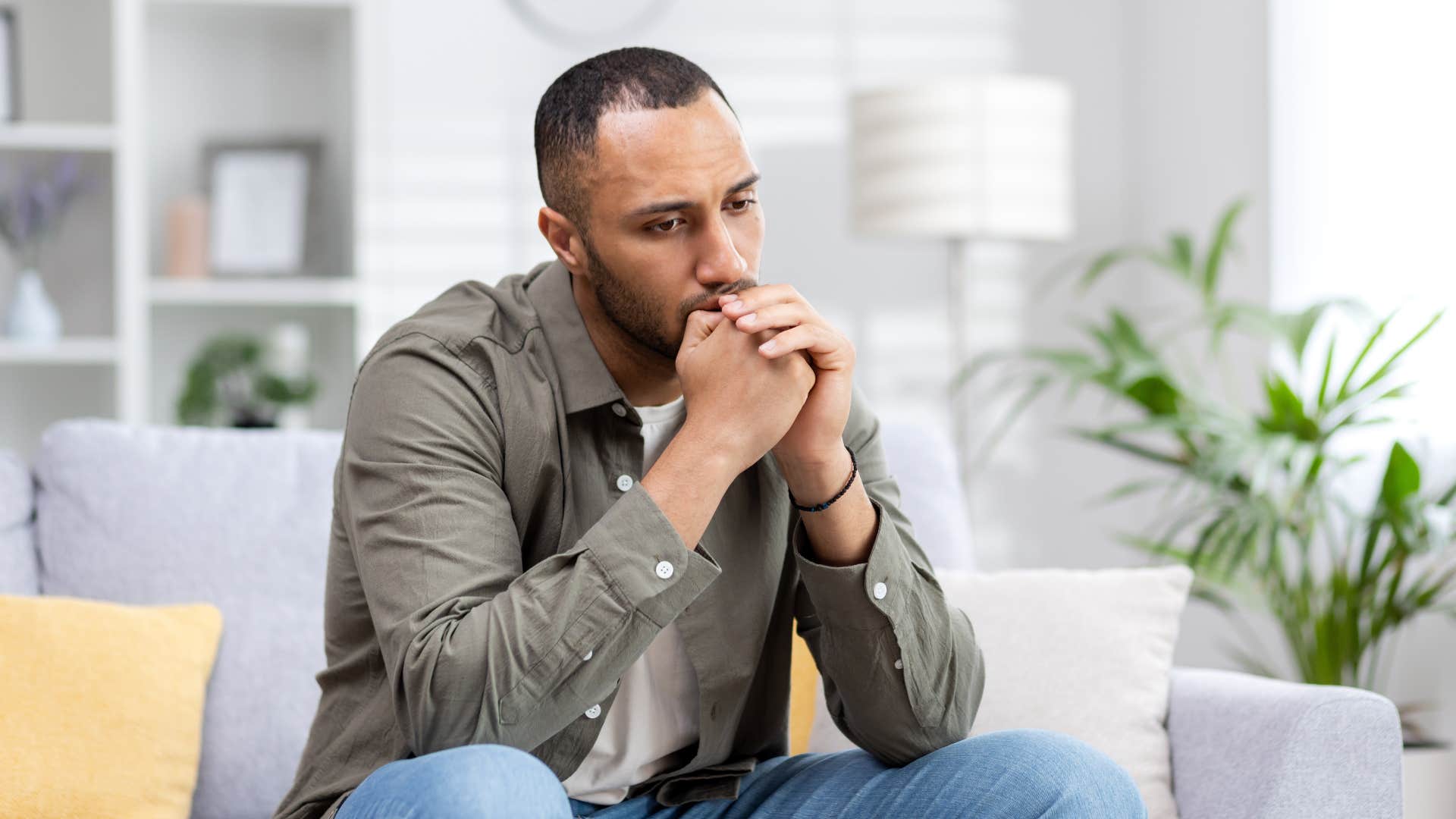 TetianaKtv | Shutterstock
TetianaKtv | Shutterstock
People in survival mode often push back on doing things like going on vacation or just having a fun day out with friends until they're able to catch up on the things that they need to in their personal life. They refuse to allow themselves the joy of relaxing and having fun because anything that feels non-essential is deemed unimportant. Over time, by postponing having fun, they end up leading a life that feels quite flat and unfulfilling.
No matter what's happening, we all need moments to let our hair down and enjoy the small moments in life, even if our personal lives may be in turmoil. If you're constantly living a life of stress, it'll eventually start to impact you in ways that you may not even realize.
8. Struggling to feel present
 Gladskikh Tatiana | Shutterstock
Gladskikh Tatiana | Shutterstock
They might physically be in the room, but for the most part, their minds are elsewhere. They don't fully register conversations, might forget what you've just said, and simply stare off into space during moments when they should be paying attention.
This checked-out behavior can come across as rude and dismissive, but people stuck in survival mode often struggle to stay engaged during their daily routines. They just can't seem to slow down enough to get there. To be present means feeling safe and emotionally regulated, but these individuals simply aren't there enough to live in the moment.
9. Feeling guilty for resting
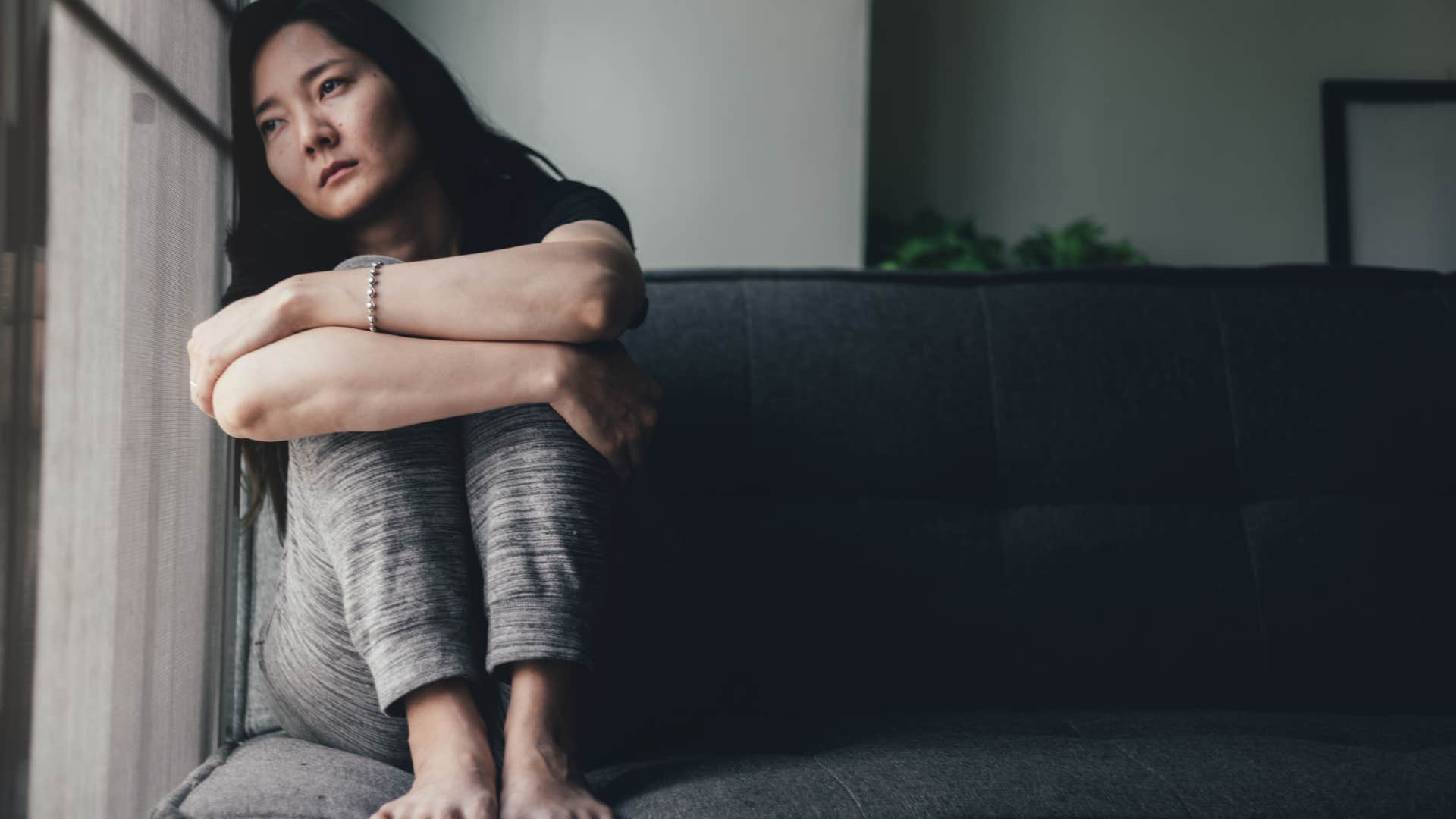 panitanphoto | Shutterstock
panitanphoto | Shutterstock
Even if they're physically exhausted and can't even keep their eyes open, they simply struggle with finding the time to take a much-needed break. The moment they sit down or rest their eyes, they're immediately thinking about all of the things they could be getting done instead of taking the time to relax. Feelings of guilt start to creep in that they're not being productive enough. But the pressure to keep going only intensifies the eventual burnout because it will happen. It's only a matter of time.
The best way that you can continue to work hard and give your energy to other things is by pouring back into yourself through rest. You shouldn't have to look for permission or believe that you're not doing enough by resting.
10. They can't remember the last time they felt calm
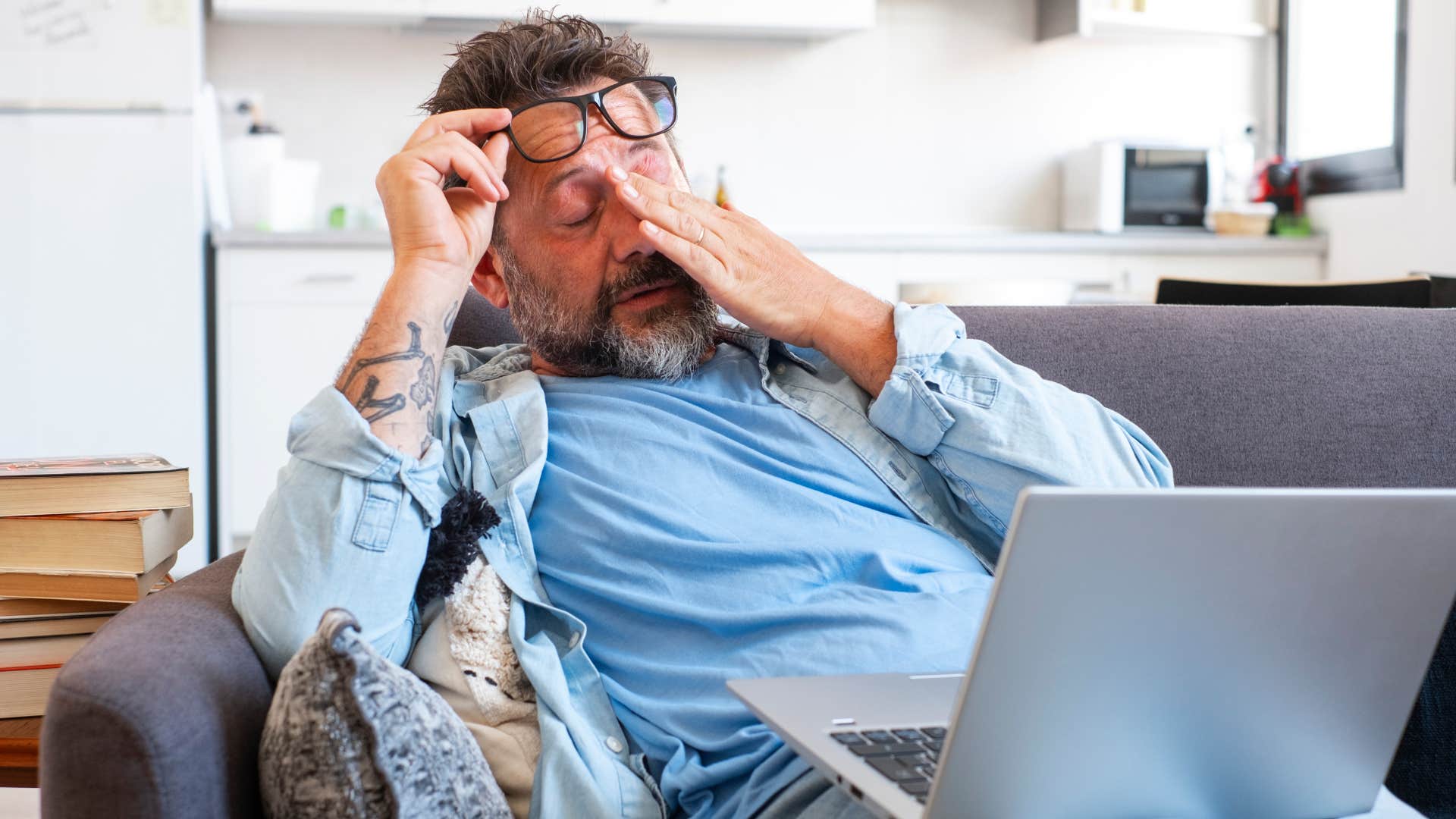 simona pilolla 2 | Shutterstock
simona pilolla 2 | Shutterstock
When you ask someone who has been living in survival mode when was the last time they felt truly calm, most of the time, they can't recall. It's because their entire baseline has simply been living with stress. Since it's become a norm, it ends up just being something that these individuals have gotten used to. They may want to feel peaceful, but they don't know how to rewire their nervous system to be able to do so.
It can be hard to train your brain to find the moments of calm when all you know is burnout and high-stress situations. Simple things like taking a deep breath, going for a walk without any distractions, and just spending time with people who don't leave you feeling overwhelmed can make a huge difference in finally leaning into that peaceful energy instead of experiencing chaos.
11. They feel safer alone
 fizkes | Shutterstock
fizkes | Shutterstock
People who are struggling and living in survival mode often prefer being alone because it can feel like the only time when they feel truly safe. Solitude and isolation start to feel like a shield, not because they dislike other people, but because they don't have the energy to pour into their other relationships. This mostly happens because they have been neglecting their own needs, so it ends up being hard for them to consider the needs of others.
They may cancel plans, avoid texting people back, and make excuses for why they can't hang out at all. Being alone means they don't have to put on a mask anymore. It's only over time, with both patience and forming safe connections with others who care about their well-being, they will slowly learn that solitude doesn't have to be the immediate answer for feeling safe.
Nia Tipton is a staff writer with a bachelor's degree in creative writing and journalism who covers news and lifestyle topics that focus on psychology, relationships, and the human experience.

